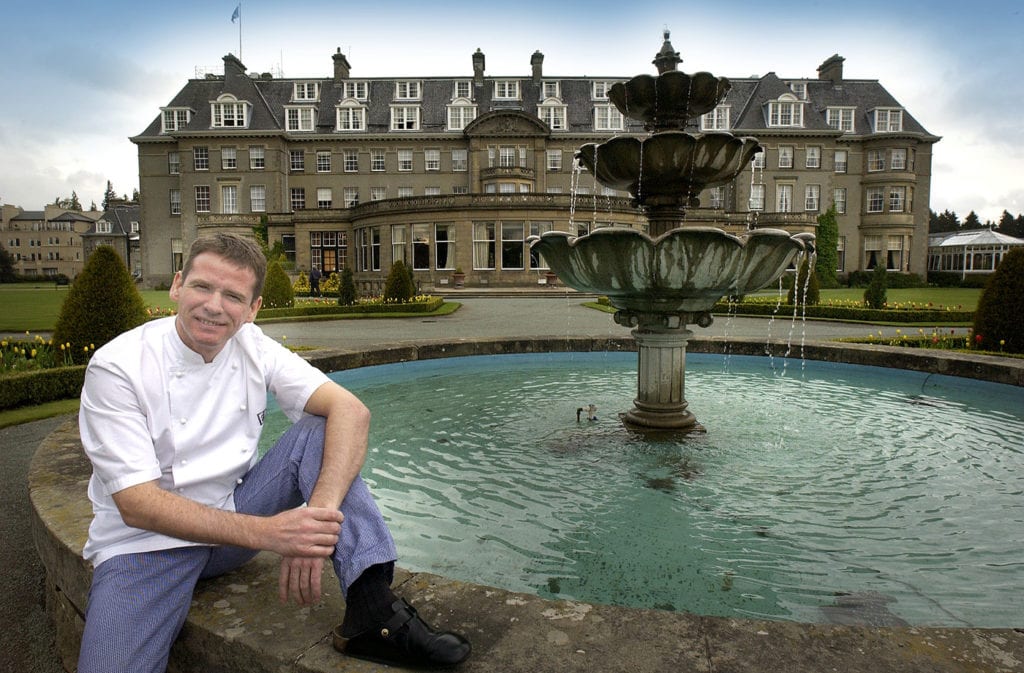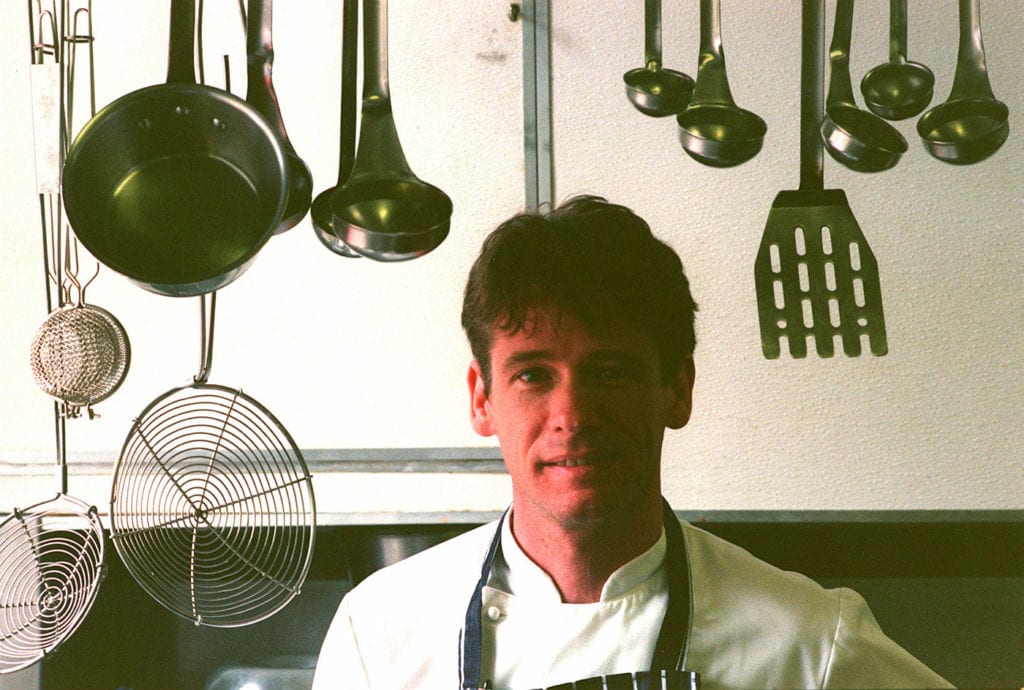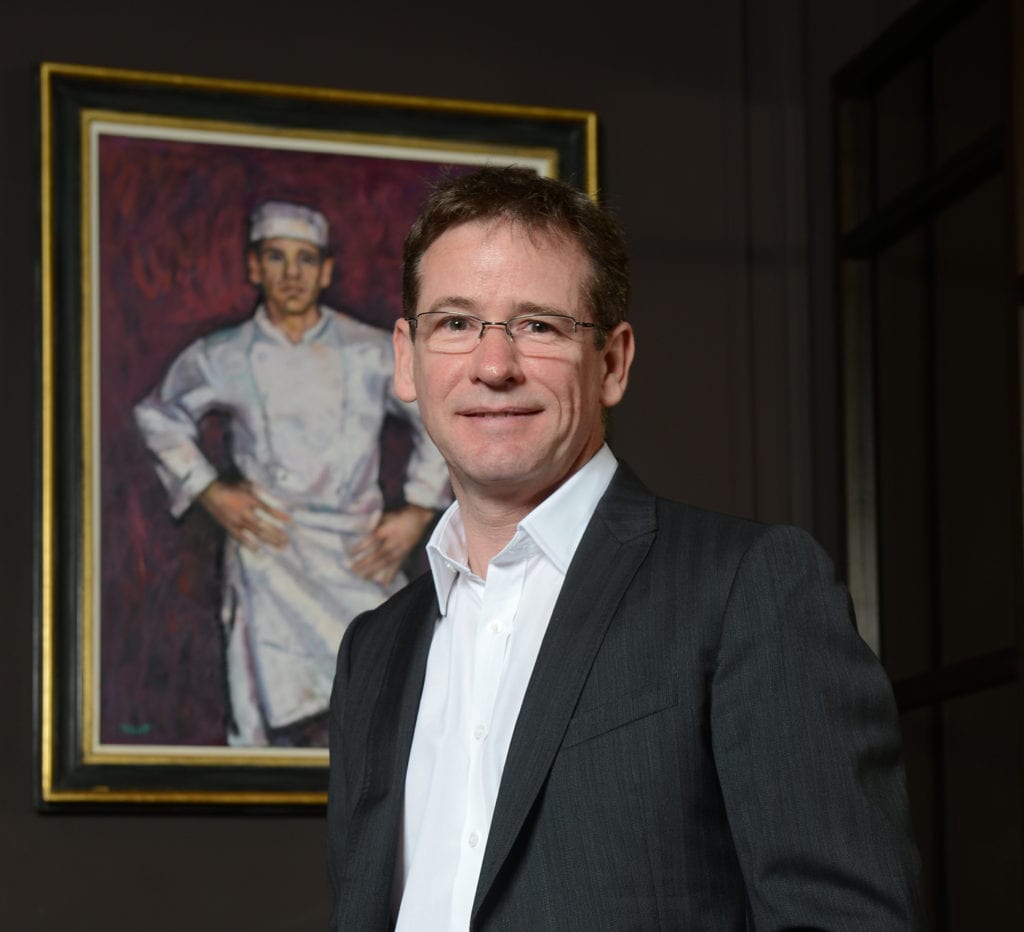A sense of shock has greeted the announcement that Scotland's most renowned chef, Andrew Fairlie, has passed away due to a terminal disease.
The restaurateur, who was diagnosed with the devastating news that he had a brain tumour in 2005, had been fighting the illness with chemotherapy, radiotherapy and surgery, but told The Times newspaper that he was informed in June that no further treatment was available.
The celebrated chef retired from his restaurant at Gleneagles, which he established in 2001, in November last year, to arrange a wedding with his partner Kate White and spend time with his family and friends.
Here, we take a look back at how he went from washing dishes in a kitchen in Perth to working in some of the world's most prestigious kitchens, before becoming Scotland's most successful chef.

Andrew at Gleneagles in 2004. Picture: TSPL
Fairlie didn't always have aspirations to be a chef, in an interview with The Scotsman writer Janet Christie in 2012, he explained that he just liked "food and eating" and was inspired by the meals he enjoyed at home with his father and family at their dinner table, he said: "It wasn’t to be famous, or be on TV because the pay’s great, or to travel. It was just every single day we would sit down and have dinner together and it was great fun.
"As a family we didn't really eat out in restaurants when I was younger so I didn't know you could have a career as a chef, and at that time it certainly wasn't considered rock and roll."
“Then, at 15, I got a part-time job polishing glasses at the Station Hotel in Perth. One Saturday I had my ‘tarragon moment’, when there was a wedding on and there was a sauce chasseur with something in it I couldn’t identify.

Andrew in the kitchen at One Devonshire Gardens. Picture: TSPL
"The chef told me it was tarragon and that was when I asked to work in the kitchen. He made me do my exams first, then, I got a job as an apprentice. I’ve never wished I had done something else. ”
From these humble beginnings, Fairlie would go on to win many, many awards, the first of which would be the The Roux Scholarship.
The competition, which would allow "promising young chefs to train with France’s finest", was set up by the now famous chefs, and brothers, Michel and Albert Roux, with the young Scot - then aged 20 - becoming the first ever recipient, leading to him being given the opportunity to study under French chef Michel Guerard at Les Pres d’Eugenie in Les Landes.
From there, he worked in a number of top kitchens in France and the UK, including a spell at the legendary l’Hôtel de Crillon, in Paris, before returning home to work in Scotland's biggest city.

Andrew in his restaurant at Gleneagles. Picture: Neil Hanna
Taking the reigns at One Devonshire Gardens in his first head chef role in 1994, it wasn't long before he'd earned his first, and at the time Glasgow's only, Michelin star.
He then left to set up his eponymous restaurant at Gleneagles in 2001, ploughing his own money into the venture before being rewarded with a Michelin star just one year later.
It was here that he invented and refined the signature dish that he is best known for, his smoked lobster, which involves locally sourced lobsters gaining their "intense smokiness" from a "five-hour infusion over whisky barrel chips".
It's here as well that he created his 'Secret Garden' – a special space hidden behind Victorian, ivy covered walls and featuring a traditional greenhouse.
A passion project that sees him, along with head grower Jo Campbell, tend to rare and heritage vegetables, fruits, herbs and edible flowers that his team will often use for their dishes at the restaurant.
In 2005, he famously catered for many of the world's leaders at the G8 summit in 2005 at Gleneagles, where he impressed French President Jacques Chirac. Recalling the dinner at the time he told the Scotsman: “The whole Chirac thing made me laugh. It put the whole focus of the G8 on ‘Is Chirac going to eat anything?’ Of course he did.
"We served smoked lobster and Scottish lamb (from my brother’s farm up the road) and Perthshire berries. At the end of the meal, he asked to see the chef and stood up and said, ‘That was fantastic food.’ It put us on the front pages, from here to the Sydney Morning Herald.”
The resort received a second Michelin star thanks to Fairlie and his team in 2006, meaning it was now part of a very elite list of UK restaurants to hold such an accolade.
Still Scotland’s only two star Michelin chef, he admitted recently that he wants no more and no less, recently telling our food columnist Stephen Jardine that to have two was always his aim. He said: “My aim was always to have 2 stars and that is our benchmark. We are comfortable working at that level day in and day out. I want to go to bed at night knowing exactly what we can deliver.
"I’ve always said, I’d rather be a strong two star than a weak three star restaurant any day."
He will be greatly missed by not only by those in the UK culinary scene but also from the majority of Scots who rightly saw him as one of the country's best ever chefs.
